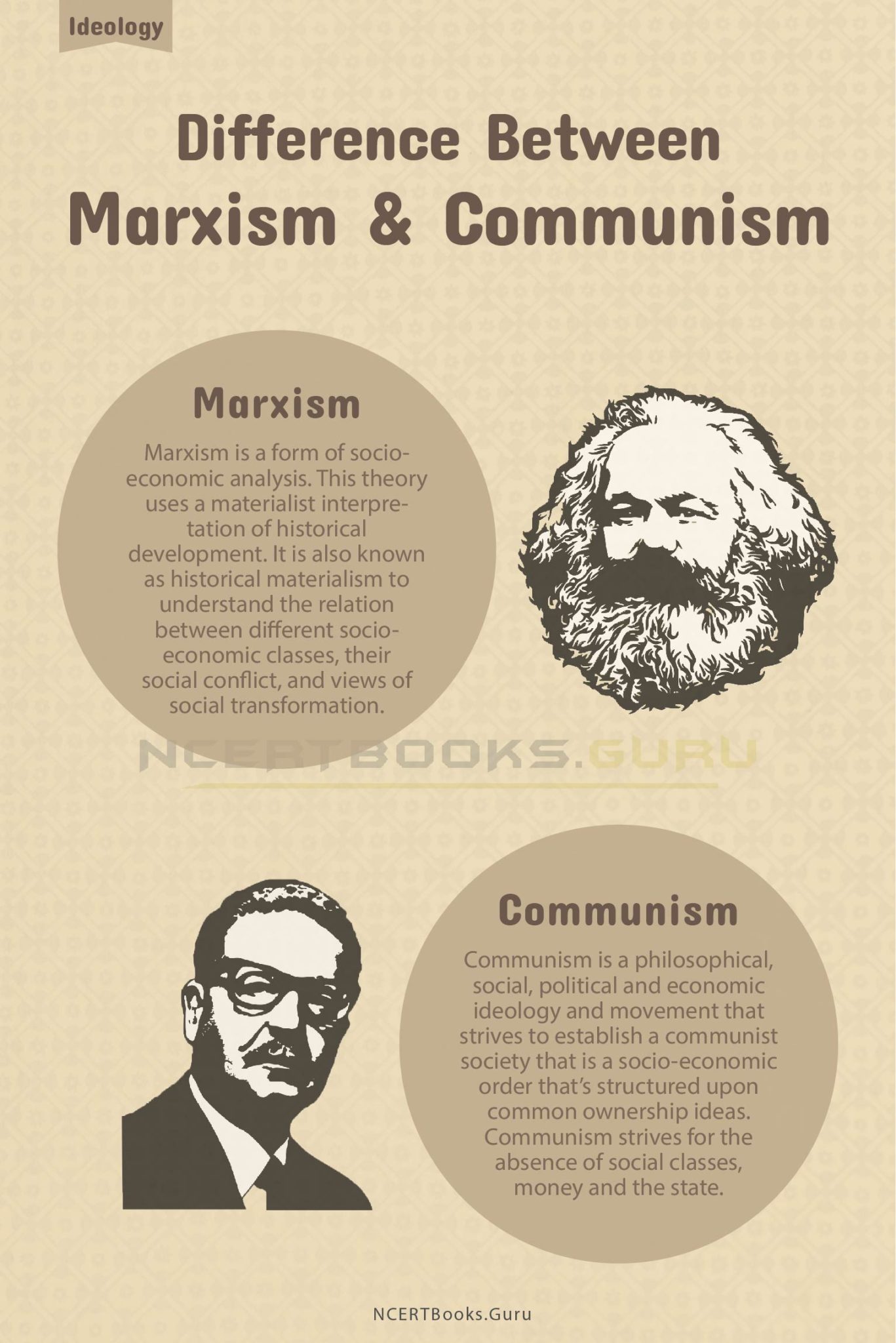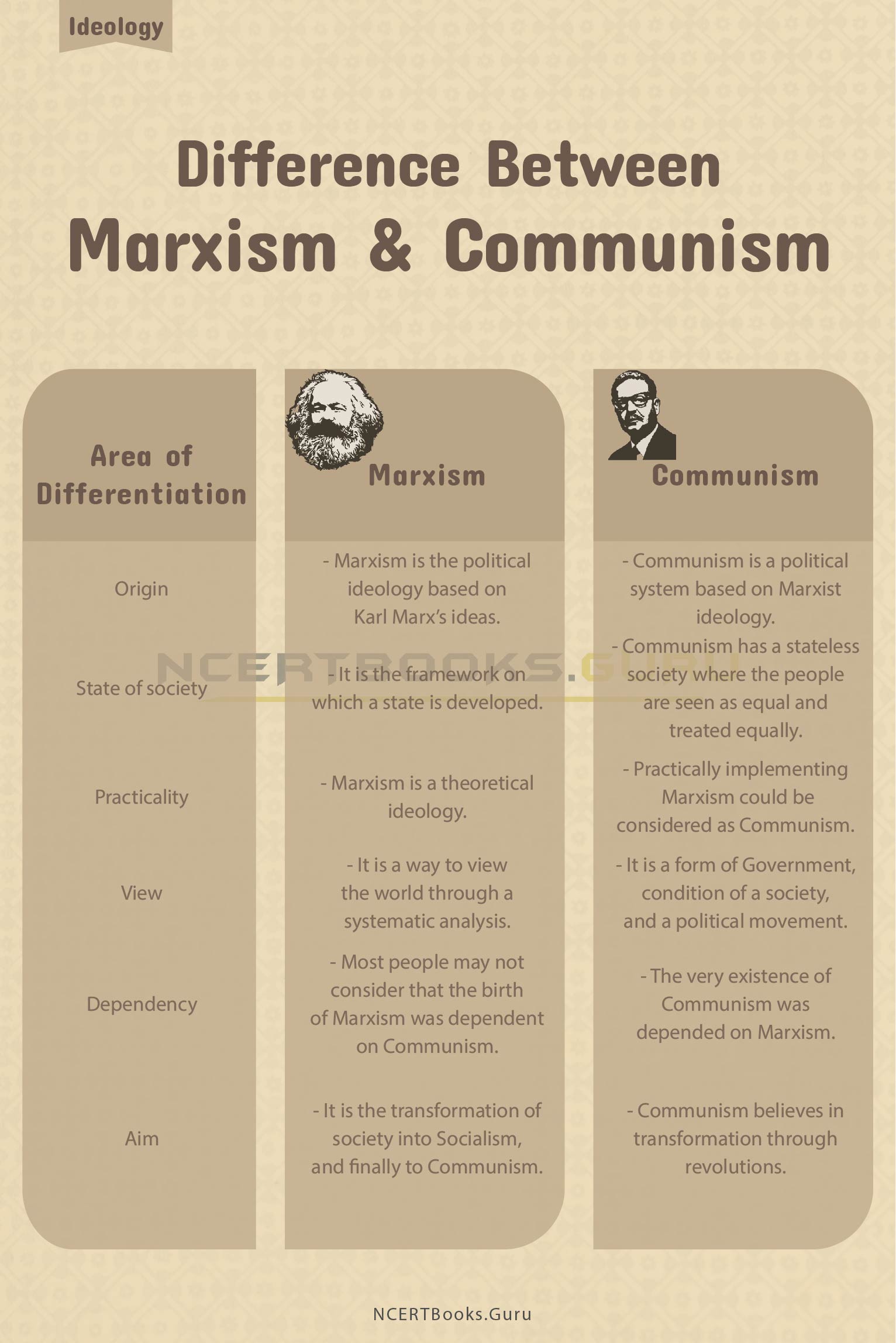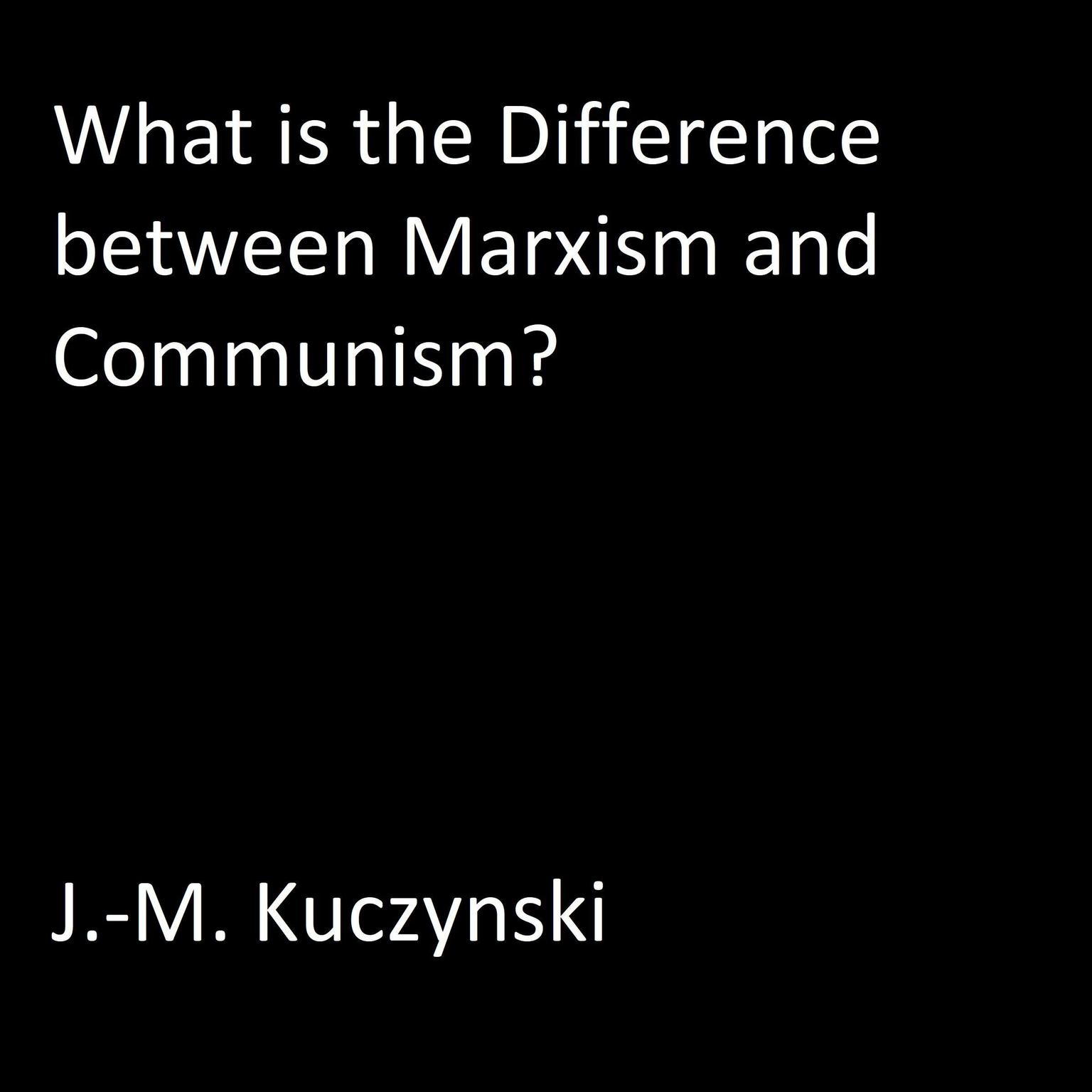What Is The Difference Between Marxism And Communism? Unveiling The Truth Behind These Ideologies
Hey there, curious mind! Ever found yourself scratching your head over terms like Marxism and communism? You’re not alone. Many people throw these words around, but do they really know what they mean? Let’s dive into the nitty-gritty of what the difference between Marxism and communism really is. Trust me, it’s more fascinating than you might think. This isn’t just about politics—it’s about understanding how societies have been shaped over centuries. So buckle up, because we’re about to embark on an intellectual journey!
Now, before we go full throttle, let me drop a quick truth bomb. Marxism and communism are often used interchangeably, but they’re not the same thing. Marxism is like the blueprint, the theory that lays the groundwork for understanding class struggles and economic systems. Communism, on the other hand, is the practical application of those ideas, aiming to create a classless society where everyone shares equally. See? Already starting to make sense, right?
By the end of this article, you’ll be able to confidently explain the nuances between these ideologies to anyone. Whether you’re a student, a history buff, or just someone who loves deep conversations, this breakdown will leave you feeling smarter and more informed. Let’s get started!
- Vegamovies Is It Safe Legal Streaming Guide Alternatives
- Movierulz What You Need To Know Legal Alternatives
Here’s a quick roadmap to help you navigate through this article:
- What is the Difference Between Marxism and Communism?
- Understanding Marxism: The Core Philosophy
- Communism: From Theory to Practice
- Historical Context: Where Did These Ideas Come From?
- Similarities Between Marxism and Communism
- Key Differences Between Marxism and Communism
- Impact on Modern Society
- Common Misconceptions About Marxism and Communism
- Marxism vs. Communism: A Side-by-Side Comparison
- The Future of Marxism and Communism
What is the Difference Between Marxism and Communism?
Alright, let’s start with the basics. The difference between Marxism and communism lies in their scope and application. Marxism is essentially a theoretical framework developed by Karl Marx and Friedrich Engels. It focuses on analyzing class struggles, economic systems, and the eventual overthrow of capitalism. It’s like the foundation upon which communism is built.
Communism, however, is the next step. It’s the practical realization of Marxist ideals. In a communist society, there’s no private ownership of property or wealth. Instead, everything is owned collectively by the people. The goal is to create a classless society where everyone contributes according to their ability and receives according to their needs.
- Kannada Movies 2025 5movierulz More Find Your Next Watch
- Movierulz Kannada Movies Whats Streaming In 2024 Beyond
Why Do People Confuse Them?
Here’s the deal—Marxism is the theory, and communism is the practice. But because communism is often rooted in Marxist principles, people tend to mix them up. Think of it like this: Marxism is the recipe, and communism is the meal. Both are related, but they’re not the same thing. Make sense?
Understanding Marxism: The Core Philosophy
Let’s break down Marxism into bite-sized pieces. At its core, Marxism is all about class struggle. Karl Marx believed that history is driven by conflicts between different social classes. In capitalist societies, the bourgeoisie (those who own the means of production) exploit the proletariat (the working class). The ultimate goal of Marxism is to dismantle this system and create a society where everyone is equal.
Marx also emphasized the importance of historical materialism. This means that economic factors shape the way societies evolve. For example, the transition from feudalism to capitalism was driven by changes in the means of production. Marxism predicts that capitalism will eventually collapse under its own contradictions, paving the way for socialism and, eventually, communism.
Key Principles of Marxism
- Class struggle: The conflict between the bourgeoisie and the proletariat.
- Historical materialism: Economic factors drive societal change.
- Overthrow of capitalism: The ultimate goal is to replace capitalism with socialism.
- Collective ownership: Resources should be owned by the community, not individuals.
Communism: From Theory to Practice
Now let’s talk about communism. While Marxism provides the theoretical framework, communism is where the rubber meets the road. In a communist society, the government plays a central role in managing resources and ensuring equality. The idea is to eliminate private property and create a system where everyone has access to what they need.
Communism has been attempted in various countries, most notably the Soviet Union and China. However, the results have been mixed. While some argue that communism can lead to greater equality, others point out the challenges of implementing such a system in practice. Corruption, inefficiency, and lack of individual freedom are common criticisms.
How Does Communism Work?
Here’s a quick rundown:
- Centralized control: The government manages all aspects of the economy.
- No private property: Everything is owned collectively by the people.
- Equality: Everyone contributes and receives equally, regardless of their role in society.
- Elimination of class distinctions: The goal is to create a society where class divisions no longer exist.
Historical Context: Where Did These Ideas Come From?
To truly understand the difference between Marxism and communism, we need to look at their historical roots. Karl Marx and Friedrich Engels developed their ideas in the 19th century, during a time of rapid industrialization and social upheaval. The Industrial Revolution brought about significant changes in the way people lived and worked, leading to increased inequality and exploitation.
Marx and Engels observed these changes and sought to explain them through their theory of historical materialism. They believed that capitalism was inherently unstable and that it would eventually give way to socialism and communism. Their ideas gained traction in the 20th century, particularly in countries like Russia and China, where revolutionary movements sought to implement communist systems.
Key Historical Events
- Russian Revolution (1917): The Bolsheviks, led by Vladimir Lenin, established the world’s first communist state.
- Chinese Revolution (1949): Mao Zedong led the People’s Republic of China to adopt communism.
- Cold War (1947-1991): Communism became a global force, leading to tensions between the Soviet Union and the United States.
Similarities Between Marxism and Communism
Before we dive into the differences, let’s talk about what Marxism and communism have in common. Both ideologies share the same ultimate goal: creating a classless, egalitarian society. They both emphasize the importance of collective ownership and the need to eliminate private property. Additionally, both are rooted in the belief that capitalism is an inherently exploitative system that must be replaced.
Here’s a quick list of similarities:
- Focus on class struggle.
- Rejection of capitalism.
- Emphasis on collective ownership.
- Goal of creating a classless society.
Key Differences Between Marxism and Communism
Now for the main event: what exactly sets Marxism apart from communism? As we’ve discussed, Marxism is the theory, while communism is the practice. Marxism provides the intellectual foundation, but communism is where the rubber meets the road. Let’s break it down further:
Marxism is more concerned with analyzing the current state of society and predicting future changes. It’s a philosophical framework that explains how class struggles drive historical development. Communism, on the other hand, is about putting those ideas into action. It’s the practical application of Marxist principles in the real world.
Table: Marxism vs. Communism
| Aspect | Marxism | Communism |
|---|---|---|
| Focus | Theoretical analysis of class struggle. | Practical implementation of a classless society. |
| Ownership | Advocates for collective ownership in theory. | Eliminates private property in practice. |
| Government Role | Does not specify a role for government. | Centralized control by the state. |
Impact on Modern Society
The influence of Marxism and communism can still be seen in modern society. While pure communism is rare today, many countries have adopted elements of socialist policies. For example, social welfare programs, universal healthcare, and progressive taxation are all inspired by Marxist principles.
However, the legacy of communism is complex. While some argue that it has led to greater equality and social justice, others point to its shortcomings, such as lack of individual freedom and economic inefficiency. The collapse of the Soviet Union in 1991 marked a significant turning point in the global perception of communism.
Common Misconceptions About Marxism and Communism
There are several misconceptions about Marxism and communism that are worth addressing. One common myth is that communism is inherently oppressive and undemocratic. While some communist regimes have been authoritarian, this is not a necessary feature of the ideology itself. Another misconception is that Marxism advocates for violence. While Marx believed that class struggle could lead to revolution, he also emphasized the importance of peaceful reform when possible.
Here are a few more myths:
- Communism is the same as socialism.
- Marxism is only relevant in developing countries.
- Communism eliminates all forms of inequality.
Marxism vs. Communism: A Side-by-Side Comparison
Let’s summarize the key differences between Marxism and communism in a quick comparison:
- Marxism is a theoretical framework, while communism is its practical application.
- Marxism focuses on analyzing class struggles, while communism aims to eliminate them.
- Marxism does not specify a role for government, while communism involves centralized control.
The Future of Marxism and Communism
What does the future hold for Marxism and communism? While pure communism may not be on the horizon, Marxist ideas continue to influence political movements around the world. Issues like income inequality, environmental degradation, and corporate power are driving renewed interest in socialist policies.
As societies grapple with these challenges, the principles of Marxism and communism may offer valuable insights. Whether through reforms or revolutions, the struggle for a more equitable world continues. And who knows? Maybe one day we’ll see a society that truly embodies the ideals of Marx and Engels.
Final Thoughts
So there you have it—a deep dive into the difference between Marxism and communism. These ideologies may not be perfect, but they’ve played a significant role in shaping the world we live in today. By understanding their nuances, we can better appreciate their contributions and limitations.
Now it’s your turn. What do you think about Marxism and communism? Do you see their ideas as relevant in today’s world? Leave a comment below and let’s keep the conversation going!
Article Recommendations
- Movierulz Piracy Risks Legal Alternatives 2024 Guide
- Kannada Movies 2025 News Updates Where To Watch Online



Detail Author:
- Name : Granville Schumm
- Username : zkub
- Email : alayna95@hotmail.com
- Birthdate : 1994-08-19
- Address : 923 Ernest Freeway Suite 158 West Ike, VA 83305
- Phone : (734) 447-8476
- Company : Emmerich PLC
- Job : Skin Care Specialist
- Bio : Aliquam dignissimos laudantium sequi sed. Consequuntur quasi distinctio nam quis. Occaecati qui et in eius vel.
Socials
facebook:
- url : https://facebook.com/scarlettdoyle
- username : scarlettdoyle
- bio : Ea magni beatae nobis accusantium tenetur.
- followers : 1957
- following : 2629
tiktok:
- url : https://tiktok.com/@scarlett.doyle
- username : scarlett.doyle
- bio : Sapiente iusto laboriosam tempore perspiciatis.
- followers : 802
- following : 1885